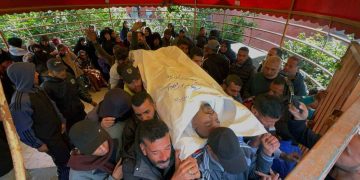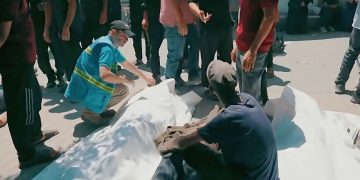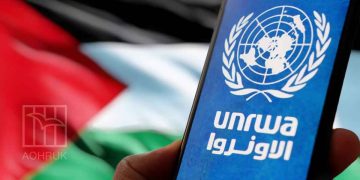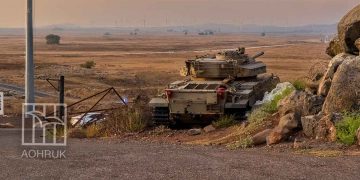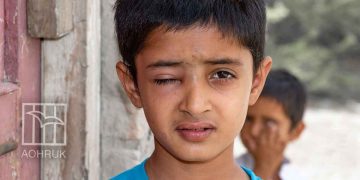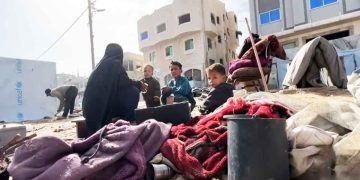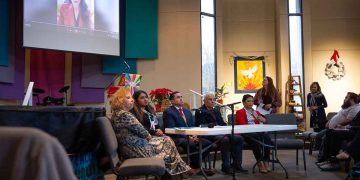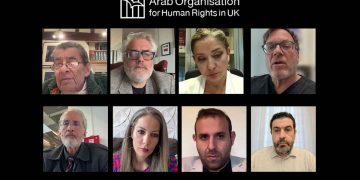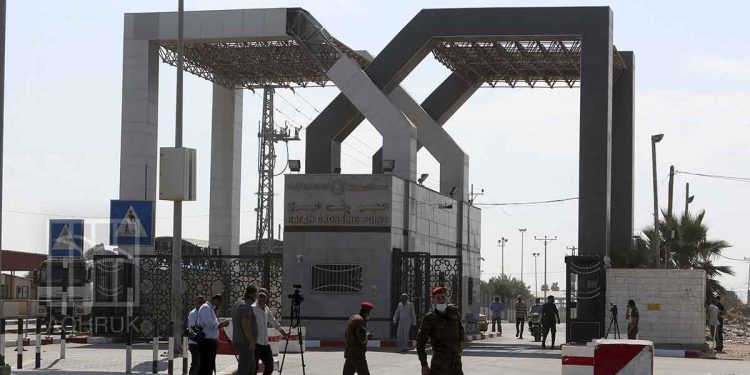AOHR UK Calls upon the Office of the Prosecutor of the International Criminal Court to investigate the flooding of the border between Gaza and Egypt and the closure of the Rafah crossing by Egyptian authorities
Arab Organisation for Human Rights in the UK (AOHR UK) on Monday 25/01/2016 submitted two communications to the Office of the Prosecutor of the International Criminal Court (ICC) inviting the Prosecutor to investigate and prosecute both the deliberate infiltration of seawater into the territory of Gaza by Egyptian forces, and the closure of the Rafah crossing during Operation Protective Edge and the months that followed the hostilities.
AOHR UK is of the opinion that both acts are constitutive of war crimes and crimes against humanity and are therefore acts under the subject-matter jurisdiction of the ICC.
The ICC also enjoys temporal and territorial jurisdiction over the crimes exposed in both communications because the State of Palestine acceded the Rome Statute in January 2015 and issued a declaration under article 12(3) of the Statute accepting the Court’s jurisdiction since 13th June 2014.
With these filings, AOHR UK seeks to put an end to the oppressive and criminal policy of the Egyptian authorities at the border and hold those responsible accountable before an international court.
Since 2006, 1.8 million Palestinian citizens residing in Gaza have been subject to occupation and blockade. Nevertheless, both the siege and the humanitarian crisis were exacerbated in mid-2013, when a military coup ousted Egypt’s first democratically elected president and inaugurated one of the darkest periods of abuse and oppression in the country’s history.
The arrival of Abdel Fattah al-Sisi to the Egyptian presidency marked a profound change in Egypt’s foreign policy towards Gaza, since July 2013 a pattern of attack, abuse and oppressive action by the Egyptian military regime directed against the civilian population of Gaza is readily identifiable. These actions follow a plan or policy aimed, supposedly and officially, at fighting terrorism in the region, but also at pressing the Gaza population.
The first measure of this policy was the de facto closure of the Rafah crossing. Given the occupation and blockade, this crossing was of key relevance for Gaza’s citizens, as it constituted their only escape valve, and the main channel of import for basic resources. However, since July 2013 the crossing has been almost permanently closed. According to the UN Office for the Coordination of Humanitarian Affairs, between October 2014 and October 2015 the Rafah border crossing was open for passage for a total of only 37 days. As a result, there are currently 30,000 Palestinians registered as humanitarian cases waiting to leave Gaza via Rafah.
It is notable that the Egyptian authorities failed to open the border during Operation Protective Edge, thus preventing the access of humanitarian aid, of basic goods and services, and even of Palestinian victims in urgent need of medical care. Moreover, they maintained their policy of closure after the end of hostilities, which harmed the social and economic conditions of Gaza, contributed to the creation of a health crisis in the territory, and fostered a humanitarian crisis of epic proportions. Operation Protective Edge destroyed hospitals, schools, thousands of houses and the only power plant in Gazan territory, therefore the closure of the Rafah crossing exacerbated an already desperate situation, depriving those resident in Gaza from accessing drinkable water, electricity, fuel, shelter and adequate medical treatment.
The permanent closure of the crossing in this context clearly constitutes a breach of Egypt’s obligations under International Humanitarian Law and further, a significant violation of the human rights of the Palestinian citizens.
However, the AOHR UK is of the opinion that the closure of the border and deprivation of basic humanitarian help could also be constitutive of an international crime in that it is an inhumane act that deliberately causes grave suffering to Gazan civilians.
The oppressive Egyptian policy within the border region, nevertheless, was not limited to the closure of the Rafah crossing.
The policy culminated, during the last three months, with the flooding of the border with seawater through immense pipelines installed by al-Sisi’s regime. This flooding, which seems to be consistent with an earlier Israeli plan to create a canal in the border zone, is destroying agricultural lands, crops, the foundations of the buildings next to the border, the basic infrastructural networks of the area, and the only aquifer of the region. The soil has been rendered unstable and the lives of those who live, walk and drive in the area are being put at risk.
The infiltration of seawater has created an environmental, social and security crisis in Gaza, and ought to be considered an inhuman act. As a result of the lack of water, and food insecurity, citizens are being forced to leave their residences next to the border while others have been evacuated due to security concerns. Therefore, the flooding of the Gaza border constitutes an international crime.
A future ICC investigation on these two topics would have extraordinarily positive consequences.
First, it could serve to loosen what are effectively siege conditions in Gaza, and consequently, change the lives of the 1.8 million citizens of Gaza, who have been suffering a years-long humanitarian crisis. As a matter of fact, the UN has predicted that Gaza won’t be a habitable place by 2020, and the closure and flooding of the border only exacerbates this tragic situation and accelerates the process of destruction.
Second, an investigation from the ICC would bring the long-awaited accountability to Egyptian authorities, which have proven to be immune from prosecution in their own jurisdiction despite the serious and widespread nature of the human rights violations committed in Egyptian territory.
Finally, if the ICC Prosecutor initiates an investigation of the cases at issue, the Court’s decision could have a potentially valuable impact in the creation and interpretation of International Criminal Law, as the ICC would need to shed light upon transcendent legal issues such as the specific scope of the territorial jurisdiction of the Court, and the circumstances under which the deprivation of basic humanitarian assistance could be considered an inhumane act of criminal character.
Toby Cadman, International Criminal Law expert and head of legal team advising AOHR UK, notes, the Egyptian policy in the border constitutes “a clear violation of the laws of war and shows evident criminal features”. He added that the International Criminal Court should analyse the situations presented in both communications and demonstrate that there are criminal methods to cause great suffering and serious injuries in entire populations that, nevertheless, do not require the use of guns and tanks. Mr. Cadman argues that “the conditions of life derived from the Egyptian policy in the Rafah border constitutes per se a violent action that affects the entire Strip in a widespread manner. It demonstrates that the heinousness of a crime does not depend on the size of an Army, or on the length of hostilities, but on the cruelty of the policy behind the actions and the party’s desire to capitalize on its position of superiority and the vulnerability of a defenceless region”.
For all these reasons, AOHR UK looks forward to the ICC Prosecutor commencing an investigation and subsequent prosecution of these cases and, thus, bring justice to the Gazan crisis and improve the lives of Palestinian citizens.

